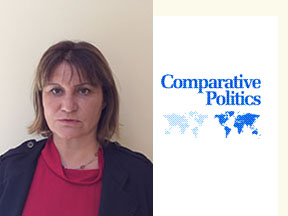
Professor Isabela Mares has wrriten a paper with Lauren Young of University California Davis entitled Varieties of Clientelism in Hungarian Elections.
Abstract: In elections around the world, candidates seek to influence voters’ choices using a variety of intermediaries and by relying on either positive electoral inducements or coercive strategies. What explains candidates’ choices among different forms of clientelism? When do candidates incentivize voters using positive inducements and when do they choose coercive strategies? This article proposes a new typology of clientelism and tests two families of explanations for why candidates would choose to use state versus non-state brokers, and inducements versus coercion, as private incentives to voters. First, existing theory predicts that political conditions such as incumbency or co-partisanship with the national party should enable the use of public over private brokers and resources. In addition, we conjecture that clientelism carries programmatic signals, such that the choice between inducements and coercion depends on local political conditions. We test our predictions using a post-electoral survey fielded in 2014 in ninety rural Hungarian communities. We find little evidence that local political conditions are related to the choice between state versus non-state brokers, but significant support for the prediction that programmatic signals explain the choice between inducements and coercion.